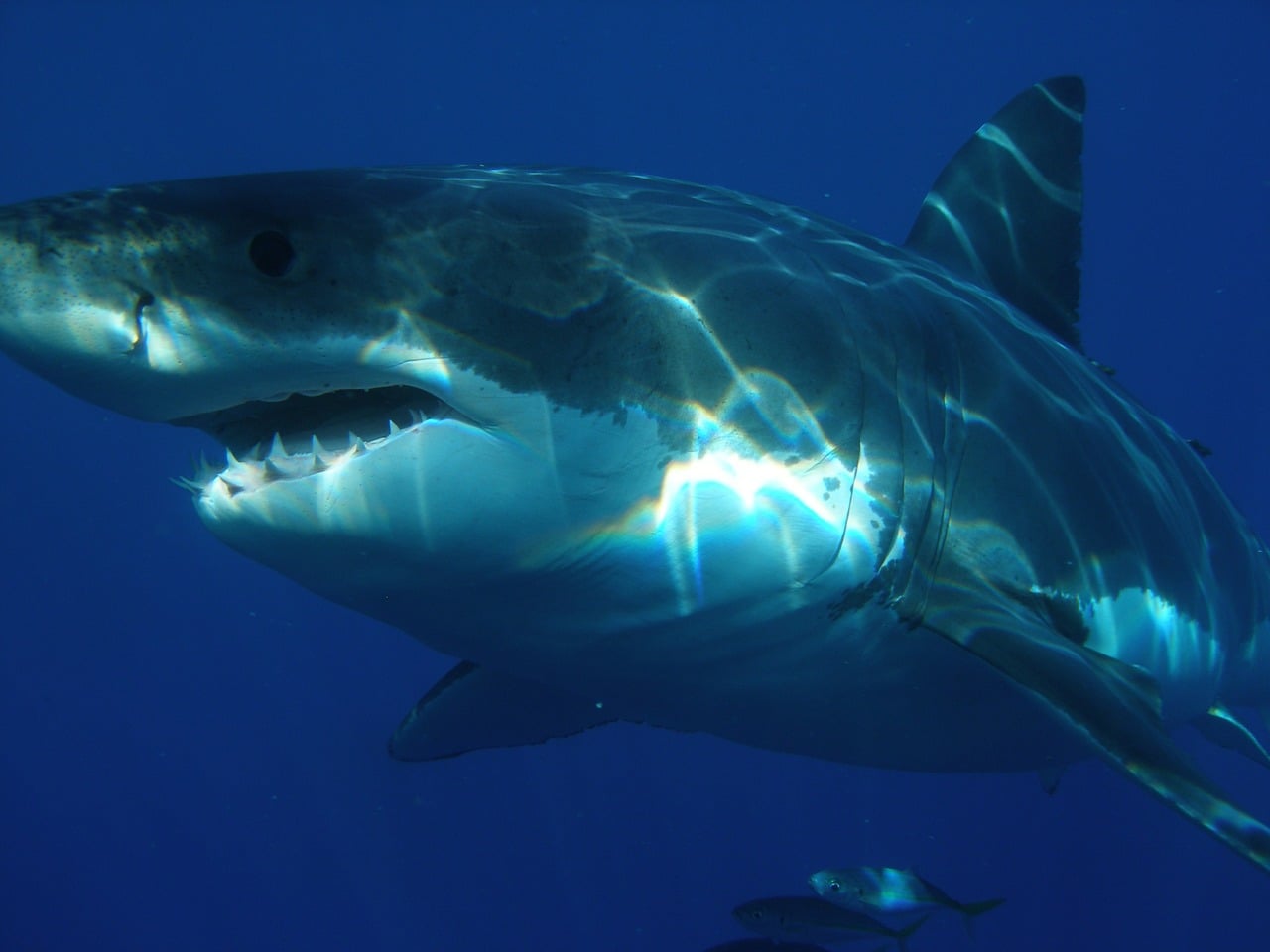Great white sharks are considered the most formidable predators in the ocean, inducing fear in every living creature that lives in it. Even humans often fear swimming in the ocean in fear of this vicious predator. However a new study suggests that great white sharks aren’t so fearless after all, being afraid of another predator that is prominent in the waters.
A group of researchers led by the Monterey Bay Aquarium conducted a study published in the journal Nature, suggesting that these sharks leave their own “preferred hunting ground,” once orcas, also known as “killer whales,” enter the area. The study found that great white sharks won’t bother returning to those areas for about a year after the orcas have entered it, even if the orcas haven’t stayed there for very long.
According to the news release, researchers documented four encounters between great whites and orcas at Southeast Farallon Island near San Francisco, California. Then, they analyzed different interactions documented from data from 165 white sharks which were tagged between 2006 and 2013, as well as data from 27 years of seal, orca and shark surveys.
Using electronic shark tags and field observations of orca sightings, researchers could learn when the sharks and orcas were present at the Farallon Islands at the same time.
The data showed that whenever the orcas would arrive, the not-so-fearless great whites would flee until the next season. The same occurred in all of the case studies. The tags showed that sharks would leave the area minutes after the orcas would arrive. The same would happen, even when orcas wouldn’t stay in the area for more than an hour.
“On average we document around 40 elephant seal predation events by white sharks at Southeast Farallon Island each season,” Monterey Bay Aquarium scientist Scot Anderson said in a statement. “After orcas show up, we don’t see a single shark and there are no more kills.”
“These are huge white sharks. Some are over 18 feet long and they usually rule the roost here,” Anderson said.
Researchers still don’t know why the great white sharks leave, but they think that it’s because orcas could target the sharks as their prey. Also, sharks could be bullied over food, forcing it out of the area.
Sharks leaving the area upon the orca’s arrival benefited elephant seals indirectly. They are often targeted by both animals in the Farallons. However, closely monitoring the sharks as part of the study showed that there were “four to seven times fewer predation events on elephant seals in the years white sharks left,” it says in the study.
“We don’t typically think about how fear and risk aversion might play a role in shaping where large predators hunt and how that influences ocean ecosystems,” added Salvador Jorgensen, the study’s lead author. “It turns out these risk effects are very strong even for large predators like white sharks — strong enough to redirect their hunting activity to less preferred but safer areas.”





